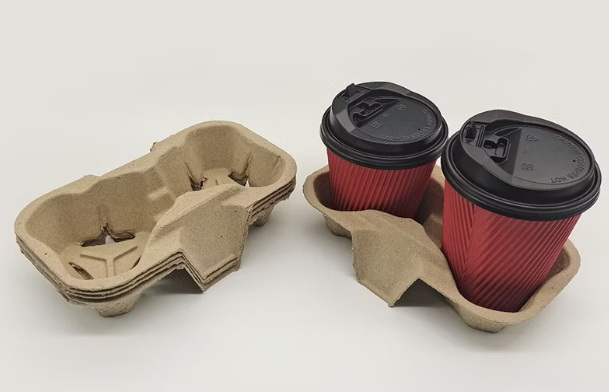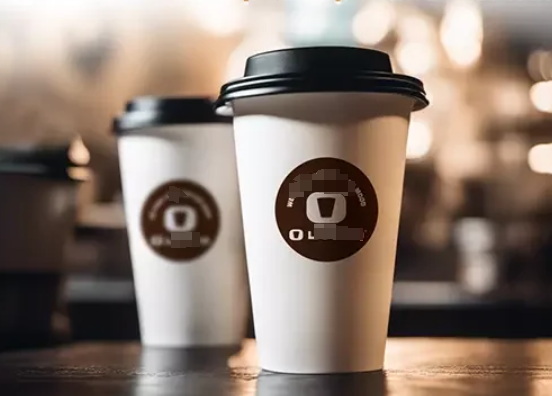
Content Menu
● Introduction to Disposable Cups
>> Types of Disposable Cups
● Key Considerations for Choosing a Disposable Cup Supplier
>> 1. Material Quality and Safety
>>> Example of Material Certifications
>> 2. Cost-Effectiveness and Bulk Pricing
>> 3. Environmental Sustainability
>>> Eco-Friendly Options
>> 4. Customization Services for Branding
>>> Customization Benefits
>> 5. Supplier Reputation and Reliability
● Steps to Evaluate and Negotiate with Suppliers
>> 1. Researching and Shortlisting Reliable Suppliers
>> 2. Requesting Samples to Assess Product Quality
>> 3. Comparing Pricing, Delivery, and Terms
>>> Pricing Comparison Factors
● Case Study: Think Cups
● Environmental Impact of Disposable Cups
>> Sustainable Practices in the Industry
● Conclusion
● FAQ
>> 1. What certifications should I look for in a disposable cup supplier?
>> 2. How can I ensure the environmental sustainability of my disposable cups?
>> 3. What are the benefits of customizing disposable cups?
>> 4. How do I evaluate the reliability of a disposable cup supplier?
>> 5. What factors should I consider when comparing pricing from different suppliers?
● Citations:
Choosing a reliable disposable cup supplier is crucial for businesses that rely on disposable cups for serving beverages. The right supplier can ensure consistent quality, meet environmental standards, and enhance your brand's reputation. In this article, we will explore the key factors to consider when selecting a disposable cup supplier and provide insights into the benefits of partnering with a reliable supplier.

Introduction to Disposable Cups
Disposable cups are widely used in cafes, restaurants, and events due to their convenience and hygiene. However, with increasing environmental concerns, the demand for eco-friendly disposable cups has grown significantly. Suppliers now offer a range of materials, including paper, biodegradable plastics, and recyclable materials.
Types of Disposable Cups
- Paper Cups: Made from paper, these cups are biodegradable and compostable, making them a popular choice for eco-conscious businesses.
- Plastic Cups: Although less environmentally friendly, some suppliers offer biodegradable or recyclable plastic options.
- Biodegradable Cups: These cups are made from materials that break down naturally, reducing waste.
Key Considerations for Choosing a Disposable Cup Supplier
When selecting a disposable cup supplier, several factors must be considered to ensure you find a reliable partner.
1. Material Quality and Safety
Ensure that the supplier uses high-quality materials that meet food safety standards. Certifications like BRCGS Global Standard for Packaging Materials and AA Grade Certification are essential for guaranteeing hygiene and safety[1].
Example of Material Certifications
| Certification Standard | Key Features |
| BRCGS Global Standard | Ensures material quality and food safety for disposable cups. |
| AA Grade Certification | Indicates high hygiene and food safety standards. |
2. Cost-Effectiveness and Bulk Pricing
Purchasing in bulk can reduce costs, but consider hidden expenses like shipping and storage. A reliable supplier offers competitive pricing without compromising quality[1].
3. Environmental Sustainability
Look for suppliers offering eco-friendly options such as strawless PET cups, recyclable lids, and biodegradable plastics. These materials align with global efforts to reduce single-use plastics[1].
Eco-Friendly Options
- Recyclable Lids: Made from materials that can be recycled, reducing landfill waste.
- Biodegradable Plastics: Break down naturally, minimizing environmental impact.
4. Customization Services for Branding
Customized cups can enhance brand recognition. Ensure the supplier provides high-quality printing and design options[1].
Customization Benefits
- Brand Recognition: Custom designs help build brand identity.
- Marketing Tool: Customized cups can serve as promotional items.
5. Supplier Reputation and Reliability
Assess the supplier's reputation by reviewing their history, delivery performance, and financial stability. References from other clients can provide valuable insights[1].

Steps to Evaluate and Negotiate with Suppliers
Evaluating potential suppliers involves several steps:
1. Researching and Shortlisting Reliable Suppliers
Focus on suppliers that align with your business values, offer eco-friendly products, and provide customization options. Reviews and recommendations can help gauge their reputation[1].
2. Requesting Samples to Assess Product Quality
Request samples to evaluate material quality and durability. This ensures the supplier can deliver consistent quality[1].
3. Comparing Pricing, Delivery, and Terms
Identify your needs and request detailed quotes from multiple suppliers. Compare the total cost of ownership, including hidden costs like shipping and storage[1].
Pricing Comparison Factors
| Factor | Description |
| Delivery Performance | Measures the reliability of suppliers through On-Time Delivery Rate (OTD). |
| Flexibility | Ability of suppliers to adapt to changes in specifications or demand. |
| Lead Time | The duration from order placement to delivery, impacting production planning and inventory. |
Case Study: Think Cups
Think Cups, a Sydney-based company, promotes reusable cups to reduce waste from disposable coffee cups. Their focus on sustainability and quality highlights the importance of aligning with suppliers who share similar values[2].
Environmental Impact of Disposable Cups
Disposable cups contribute significantly to waste. Choosing eco-friendly options can enhance your brand's reputation and appeal to environmentally conscious consumers[4].
Sustainable Practices in the Industry
- Biodegradable Materials: Used by companies like LOKYO, these materials reduce landfill waste[4].
- Recyclable Cups: Offered by suppliers like Limepack, these cups minimize environmental impact[7].
Conclusion
Choosing a reliable disposable cup supplier is vital for maintaining product quality, ensuring environmental sustainability, and enhancing brand reputation. By focusing on material quality, cost-effectiveness, customization options, and supplier reputation, businesses can find a supplier that meets their needs and aligns with their values.

FAQ
1. What certifications should I look for in a disposable cup supplier?
When selecting a disposable cup supplier, look for certifications like BRCGS Global Standard for Packaging Materials and AA Grade Certification, which ensure high material quality and food safety standards[1].
2. How can I ensure the environmental sustainability of my disposable cups?
Choose suppliers offering eco-friendly options such as biodegradable plastics, recyclable lids, and paper cups. These materials reduce waste and align with global sustainability efforts[1][4].
3. What are the benefits of customizing disposable cups?
Customized cups enhance brand recognition, serve as marketing tools, and improve customer experience. They allow businesses to create visually appealing products that showcase their brand[1].
4. How do I evaluate the reliability of a disposable cup supplier?
Assess the supplier's reputation by reviewing their history, delivery performance, and financial stability. Requesting samples and comparing pricing structures can also help evaluate reliability[1].
5. What factors should I consider when comparing pricing from different suppliers?
When comparing pricing, consider the total cost of ownership, including hidden costs like shipping and storage. Evaluate delivery performance, flexibility, and lead times to ensure the supplier meets your operational needs[1].
Citations:
[1] https://www.chinaecogreen.com/news/essential-tips-for-choosing-the-right-cup-with-lid-supplier/
[2] https://thinkcups.com/pages/faqs
[3] https://www.britishcouncil.org/sites/default/files/kvl-chinese-technical-v1.00.xlsx
[4] https://www.lokyofoodpack.com/blog/choosing-paper-cup-manufacturer.html
[5] https://www.rainbowcups.eu/custom-paper-coffee-cups-faq/
[6] https://atyourservous.com/buying-plastic-cups-in-bulk/
[7] https://www.limepack.eu/content/8-faq
[8] https://gmz.ltd/top-7-features-to-look-for-in-your-paper-cup-supplier/
[9] https://www.thepapercupcompany.com/html/faq.html
[10] https://www.mitchellcooper.co.uk/disposable-cup-buying-guide

















